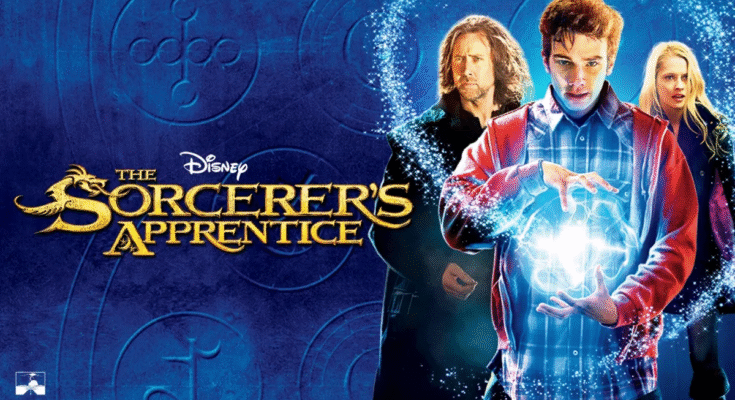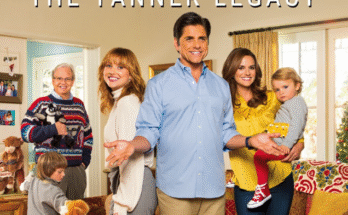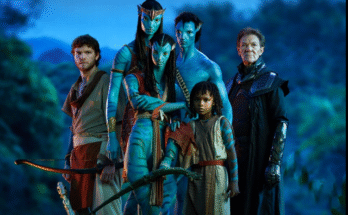When Disney released The Sorcerer’s Apprentice in 2010, it arrived as both a love letter to mythic storytelling and a playful reinvention of magic for the modern age. Led by Nicolas Cage’s enigmatic turn as Balthazar Blake, the film fused fantasy, comedy, romance, and action into a whirlwind adventure that still glows with energy years later.
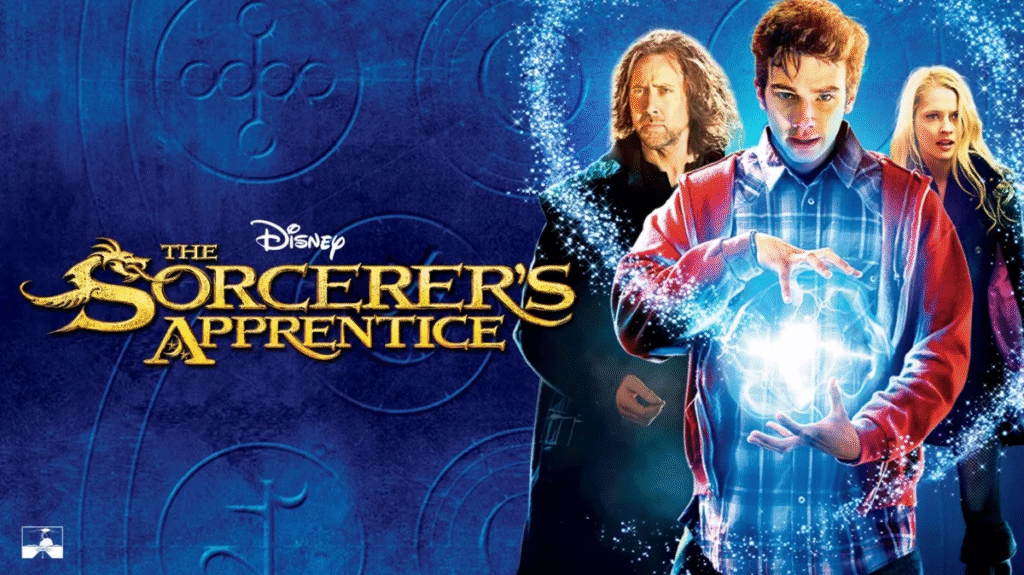
At its center is Dave Stutler, played with endearing awkwardness by Jay Baruchel. A physics student more comfortable with equations than people, Dave becomes the unlikely chosen one—destined to inherit the secrets of a sorcerer’s craft. His journey from clumsy misfit to empowered apprentice embodies the timeless appeal of the “reluctant hero” arc, grounding the spectacle in heartfelt humanity.
Nicolas Cage, as Balthazar, delivers one of his most eccentric yet magnetic performances. Cloaked in mystery and weariness, he carries centuries of knowledge, heartbreak, and battle scars. Cage strikes the perfect balance between mentor and maverick, his sharp intensity softened by moments of humor and reluctant affection toward his apprentice. It’s a role tailor-made for his larger-than-life screen presence.
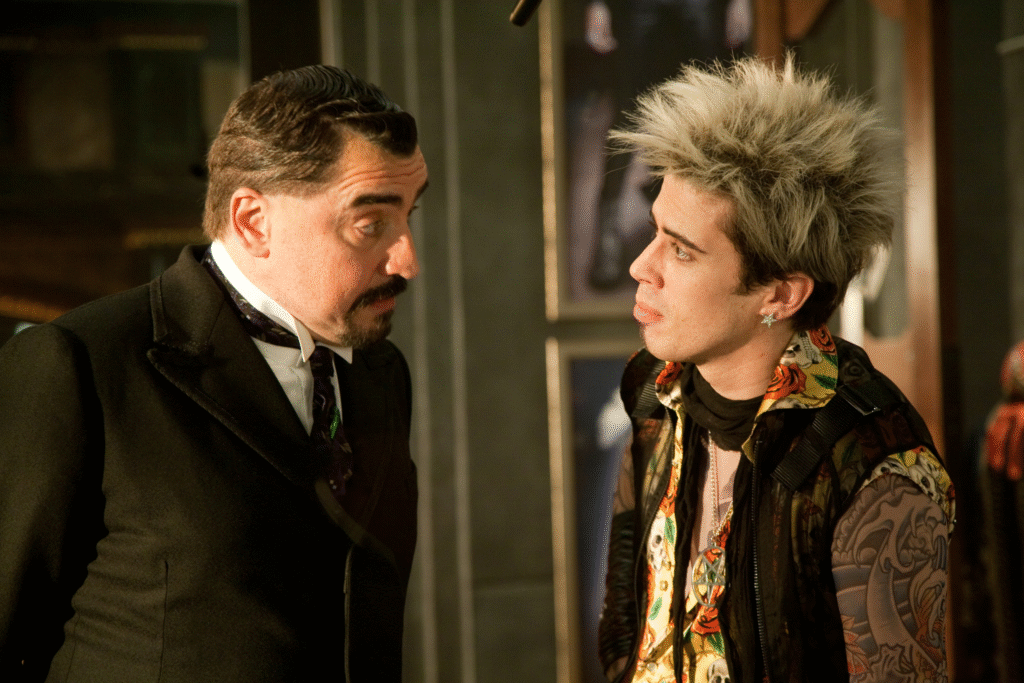
The villainy is embodied by Alfred Molina’s Maxim Horvath, whose blend of charm and menace makes him a memorable adversary. Molina imbues the dark sorcerer with gravitas, ensuring that every confrontation feels personal, and every spell cast carries real danger. His performance anchors the stakes of the story, providing the perfect foil to Balthazar’s weary heroism.
Visually, the film thrives on spectacle. From dueling sorcerers hurling fire across Manhattan to magical chases through Chinatown, the city itself becomes a stage for epic battles. One standout sequence—the mop-and-bucket homage to Disney’s Fantasia—reminds us of the film’s playful roots while proving that practical comedy and awe-inspiring effects can coexist seamlessly.
Yet beneath the spectacle, the heart of the story lies in Dave’s coming-of-age. His struggles with self-doubt, his growing romance with Becky (Teresa Palmer), and his gradual embrace of responsibility resonate with universal themes of destiny and choice. Magic becomes a metaphor for potential—the untapped spark waiting to ignite when courage meets opportunity.
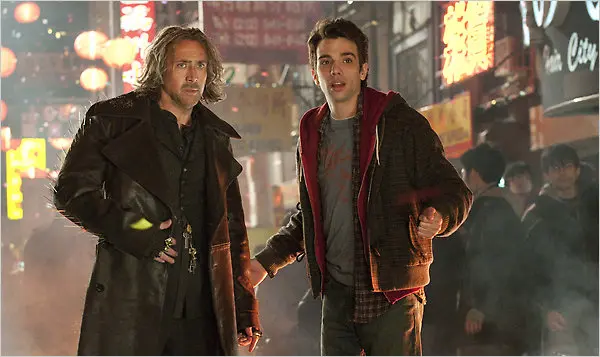
The pacing keeps the energy high without sacrificing character development. Moments of levity balance the intensity, ensuring that the film remains accessible to both younger audiences and longtime fans of fantasy. It’s a rare blend: fast-paced enough to thrill, but heartfelt enough to stick with you after the credits roll.
The soundtrack, infused with Trevor Rabin’s soaring compositions, underscores the adventure with grandeur. The score elevates the duels into symphonies of chaos and triumph, while quieter tracks bring warmth to Dave’s tentative steps into romance and responsibility. Music here doesn’t just accompany the story—it amplifies its heartbeat.
What makes The Sorcerer’s Apprentice endure is its refusal to take itself too seriously. Yes, the magic is epic and the battles fierce, but the film never loses its sense of fun. Its humor, charm, and optimism make it as enjoyable on a nostalgic rewatch as it was on opening night.
While not without flaws—some uneven pacing, some effects that feel very 2010—the film’s charm outweighs its shortcomings. It’s the kind of movie best enjoyed with friends, popcorn in hand, ready to lose yourself in a world where science and sorcery collide.
In the end, The Sorcerer’s Apprentice stands as a reminder that magic lives not only in spells and legends, but in courage, love, and the willingness to embrace the extraordinary. ⭐️⭐️⭐️⭐️ Four stars well deserved—for a film that still casts a spell, even fifteen years later.
